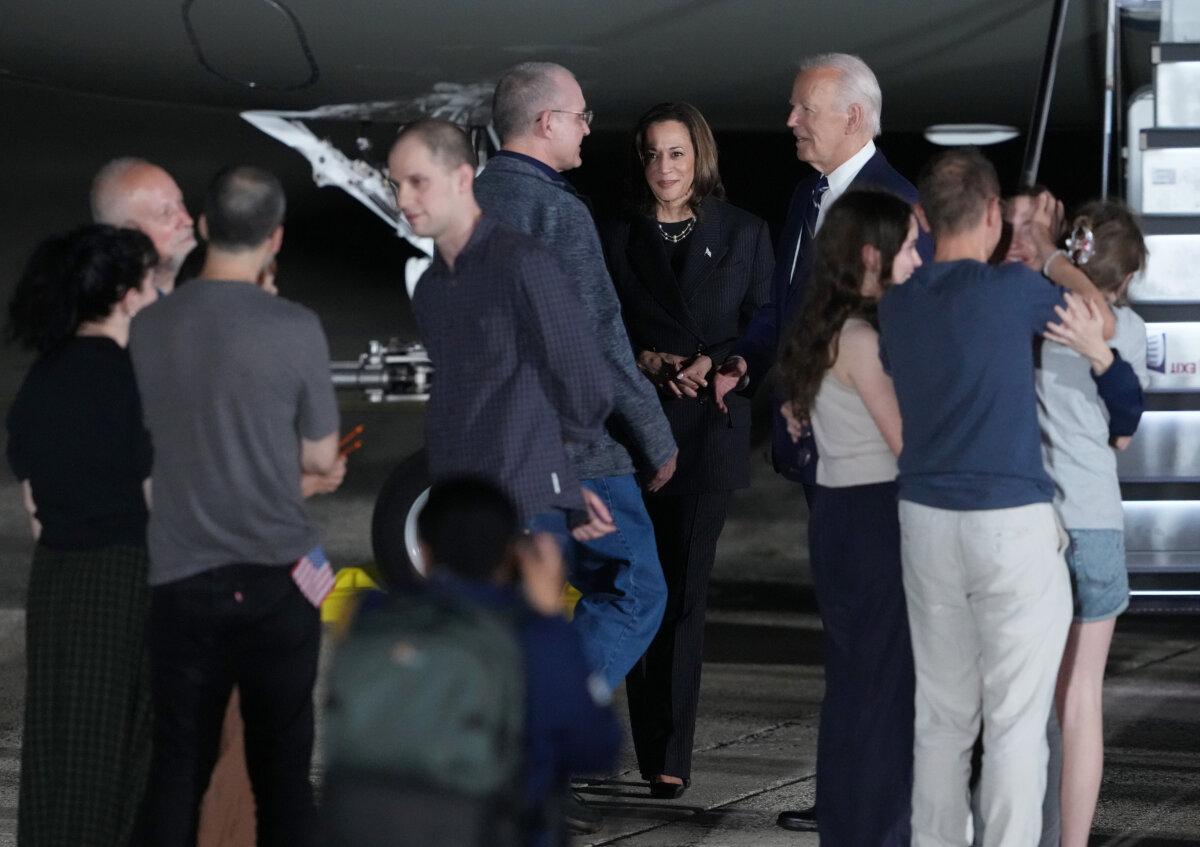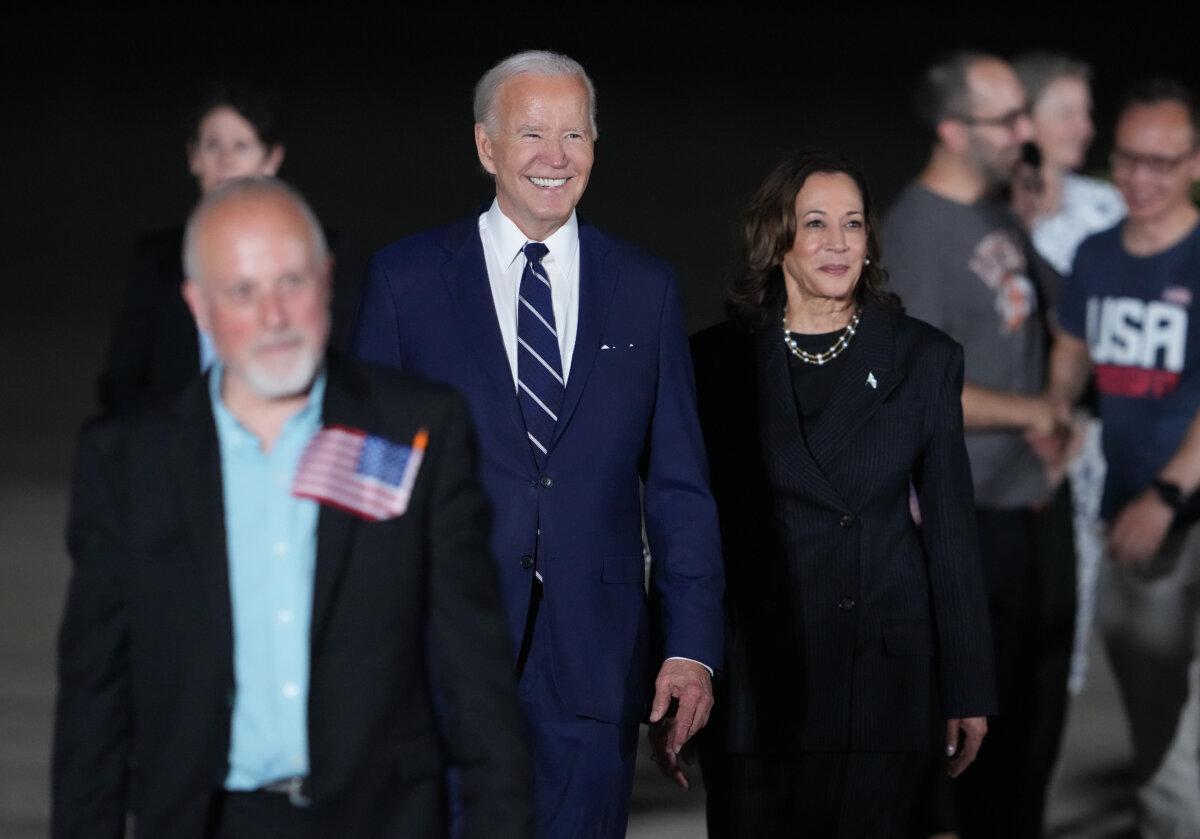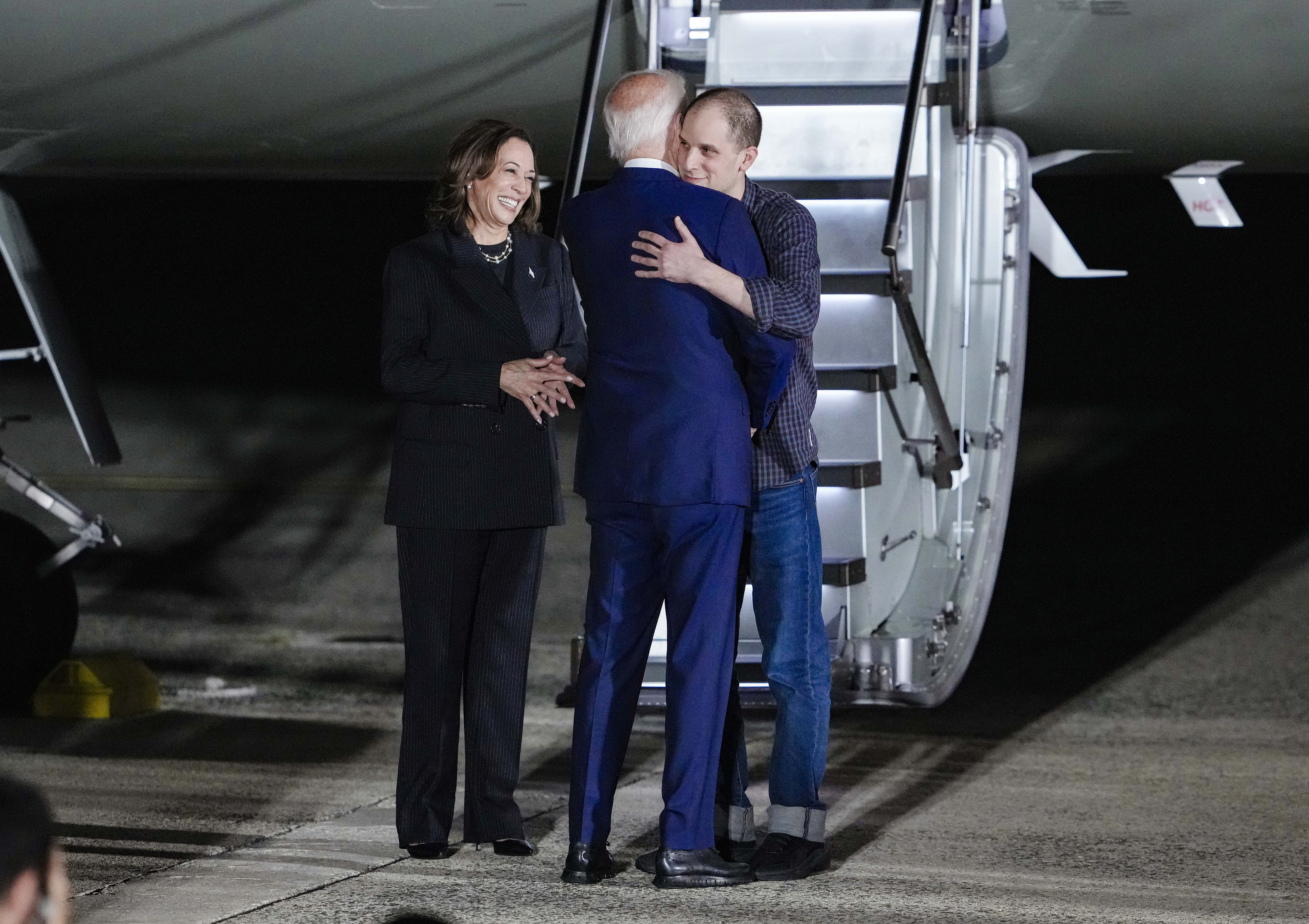
President Joe Biden and Vice President Kamala Harris welcome Paul Whelan, Evan Gershkovich, and Alsu Kurmasheva, all prisoners freed by Russia, as they arrive at Joint Base Andrews, Md., on Aug. 1, 2024. Andrew Harnik/Getty Images
President Joe Biden, speaking to reporters on the tarmac shortly after the arrival of the three freed Americans, said the “toughest call” on the prisoner swap deal was not made by the United States, but by its allies.
“I asked them to do some things that were against their immediate self interest … particularly Germany and Slovenia,” he said shortly after midnight, going into Aug. 2.

President Joe Biden and Vice President Kamala Harris walk on the tarmac after welcoming home freed prisoners Paul Whelan, Evan Gershkovich and Alsu Kurmasheva after they arrived at Joint Base Andrews, Md., on Aug. 1, 2024. Andrew Harnik/Getty Images
